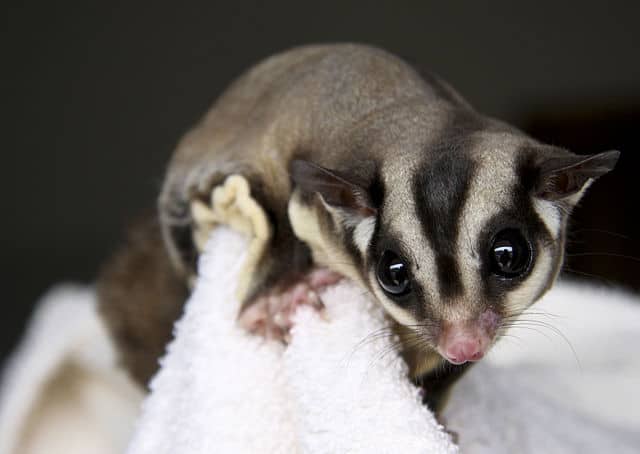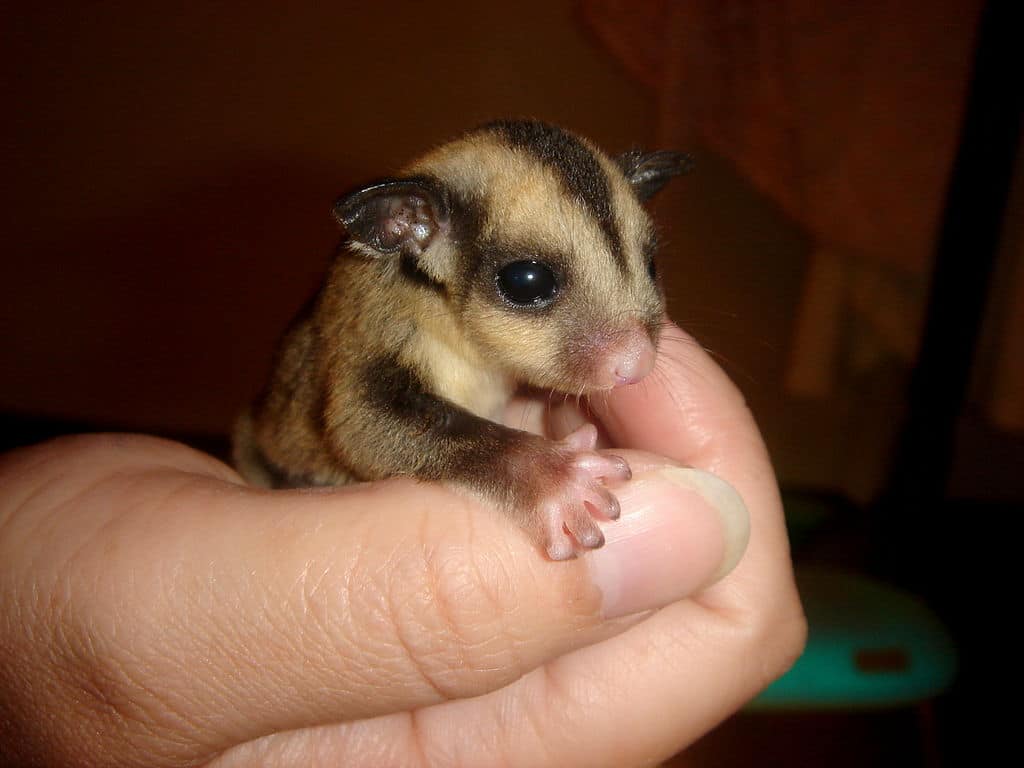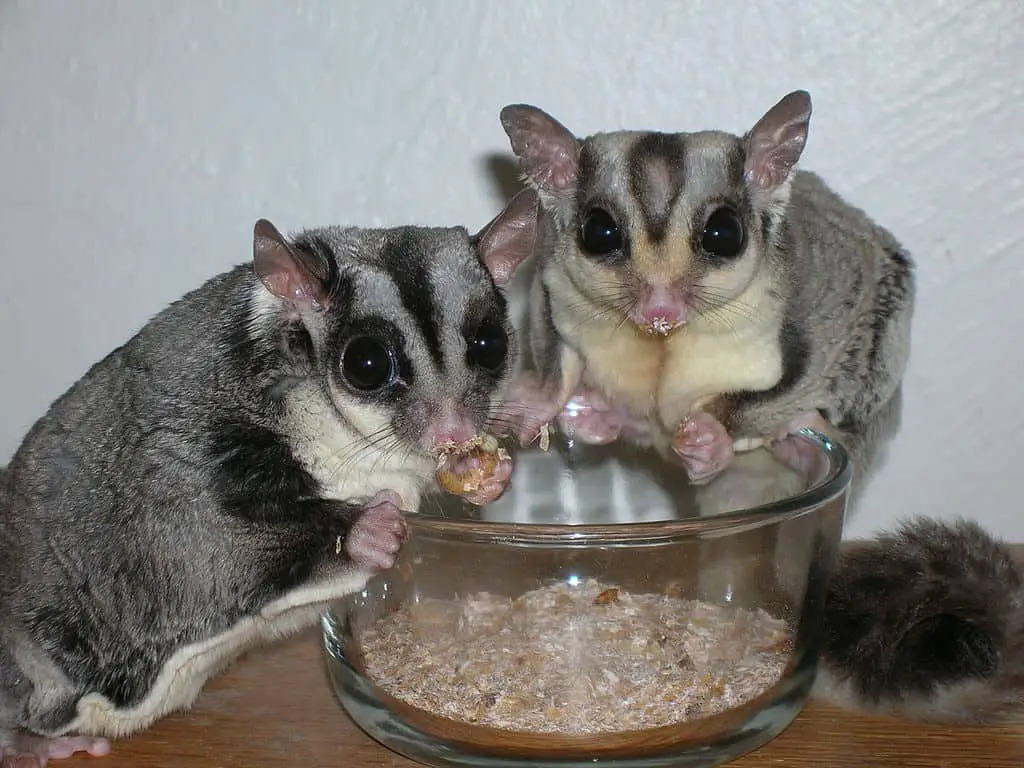Sugar gliders are adorable marsupials that are often kept as pets due to their docile temperament and adorable appearance. Despite how cute they are, they’re relatively difficult to care for, and people who consider taking one of these animals into their home often have many questions. One question that’s often asked is what the lifespan of a sugar glider is.
The lifespan of sugar gliders depends on a few factors. First, it depends on whether they live in captivity or in the wild. In captivity, they typically live for 10 to 15 years. In the wild, they typically have a shorter lifespan and only live for about 3 to 9 years.
However, that doesn’t really tell the whole story. Their lifespan depends on many more factors than just those two. If you’re the proud owner of a glider, you’ll naturally want to increase its lifespan as much as possible. Luckily, there are ways to do that.
How long do sugar gliders live?

Sugar gliders live 3 to 9 years in the wild and 10 to 15 years in captivity. The reason why they tend to live longer in captivity is that they’re protected by us humans.
In the wild, they have several predators such as owls, snakes, and cats. In captivity, they do not have to fear those animals because we keep them away. Also, in captivity, there’s no chance of them starving to death because we will always provide them with food.
Due to the fact that these animals can live for such a long time in captivity, you have to be absolutely sure that you can take care of them for so long. When you buy a sugar glider, you’re committing to caring for them for over a decade. If you’re not absolutely sure that you can do this, do not get one.
It happens all too often that people think that a sugar glider seems fun, only for them to end up in a shelter.
The lifecycle of a sugar glider.

Before we go over how to make sure that your glider reaches its maximum lifespan, let’s take a look at how they typically progress through life.
Baby
Baby sugar gliders are called Joeys. When they’re born, they’re incredibly tiny, about the size of a grain of rice. They quickly enter their mother’s pouch after they’re born, which is where they’ll stay for about 70 to 74 days.
Life in the pouch
When they’re in the pouch, the babies have their eyes completely shut and rely completely on their mother for survival. Their jaws are clamped to the breast from which they drink milk.
After about 70 days of drinking their mother’s milk, they emerge from the pouch, ready to explore the world.
Young gliders
When they emerge from the pouch and first see the world, they’re very inquisitive little creatures. Everything is new for them and they love to explore.
After about 8 to 12 months females will reach puberty. Males are a bit behind and reach puberty at 12 to 15 months of age.
Adult sugar gliders
Once they’ve reached puberty, they’re mature enough to be considered adults. They can reproduce and make babies of their own.
They’re also considered fully grown by this time and are ready to take on the rest of their life.
How to maximize your sugar glider’s lifespan

Captive sugar gliders can live for 10 to 15 years, which is quite a large range. The reason for that is that how long they live depends not only on their genetics but also for a large part on how you care for them. By giving them the proper care, you can extend their lifespan.
Here are the x most important things to do to ensure that your glider lives a long and healthy life.
1. Feed them a good diet
Feeding your glider a good diet is one of the most important things in ensuring that they live for as long as possible.
Their diet in captivity should closely mimic what they eat in the wild.
Sugar glider experts have formulated the ideal diet for them, of which an important component is something called the “Leadbeater’s mixture”.
To make this mixture, follow these instructions:
- Mix 150 ml honey and 150 ml warm water in a bowl
- In a separate bowl, mix 1 hard-boiled egg without the shell.
- Combine the two mixtures and mix them together.
- Add the following: 1 Teaspoon Vionate vitamin powder, 25 grams high protein baby cereal
They should eat about a teaspoon of this per day. The rest of their diet should consist of fruits, vegetables, pellets, and insects.
If you feed your glider well, it will go a long way in making sure that they stay healthy which contributes to them living a long, happy, and healthy life.
One thing to also be wary of is overfeeding. As their name suggests, sugar gliders love sugary food, as a result, it’s quite easy to overfeed them. Obesity is not good for them and can significantly reduce their expected lifespan.
2. Don’t stress them out
Gliders that live a stress-free life have longer lifespans than those that are commonly exposed to stress. To keep your glider free from stress, the following things are important:
- Little to no noise during the day so that they can get good sleep
- A peaceful environment where they don’t get startled by strange scents or loud noises
- No predators nearby
- Good bond with the owner
Number 4 on that list is very important because if you do not form a good bond with them they will continuously be scared of you which will cause them a lot of stress. The bonding process is very important for any glider and also the owner itself. It’s a very rewarding process and will not only result in your glider living longer, but it will also reduce unwanted behavior such as biting.
3. Regular vet visits
Regular vet visits are important to ensure that any potential diseases that your glider has are discovered early. When problems are discovered earlier they’re often much easier to treat than when they go undetected for a long time.
These animals commonly have tooth problems, so also keep an eye on their teeth.
It’s recommended to have a vet that focuses on exotic animals.
4. Don’t take them outside
You shouldn’t take your pet sugar glider outside. They are arboreal animals and very quick. If you don’t pay attention for a little bit they can easily run away. Even if you have them on a leash, which is something that people do, a dog, cat, or bird could attack them.
5. Give them a friend
You should not keep sugar gliders solitarily. They’re social animals in the wild and humans can simply not provide the social stimuli and interaction that a glider needs to thrive. If you keep them alone they can easily become depressed which is not good for them.
Final words
Sugar gliders in captivity can live for 10 to 15 years, but their lifespan does depend on how you care for them. If you care for them properly and follow the 5 tips we’ve given you, they can easily live their entire lifespan happily and healthily!
- How Long Do American Eskimo Dogs Live? Important Factors and Care Tips - September 29, 2023
- Do American Bulldogs Need Grooming? Essential Tips and Care Guidelines - September 29, 2023
- Do Bengal Cats Enjoy Playing? Essential Tips for Keeping Them Active - September 29, 2023